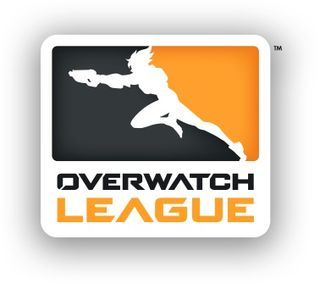Blizzard Reveals First 'Overwatch' League Teams

Overwatch esports fans can rejoice: Blizzard Entertainment revealed the first seven teams participating in the Overwatch League, the company’s answer to traditional sports organizations like the NFL or MLB, and reaffirmed plans to host the league’s first season later this year.
The Overwatch League is an organization-slash-competition with a focus on city-based franchises. Much like the New England Patriots or the New York Mets, teams are supposed to represent their host cities. The primary difference here is that Overwatch League teams will compete internationally--the first seven cities are in the U.S. and Asia, but other teams are expected to be announced before the league kicks off.
The first seven teams are based in Boston, New York, San Francisco, Los Angeles, Miami, Shanghai, and Seoul. (Miami’s team will also represent sort-of-nearby Orlando.) Each team will be expected to build its own venue for both home and away games, but because this is the Overwatch League’s first season, Blizzard said this year’s games will be hosted at an “esports arena” in the Los Angeles area. Games will be played on Thursdays, Fridays, and Saturdays during the Overwatch League's season.
These games won’t be hosted by no-name organizations. Boston’s spot was secured by New England Patriots owner Robert Kraft, and the company behind the New York Mets bought that city’s spot. (What, did you think we mentioned those teams earlier by accident?) This support highlights Blizzard’s hopes of having the Overwatch League stand alongside the NFL and MLB--and that some members of those organizations are interested in that proposition.
The first seven teams were rounded out by companies and individuals who lean more towards esports. San Francisco and Los Angeles were scooped up by NRG Esports and Immortals, respectively, while Miami-Orlando went to Misfits CEO Ben Spoont. Across the pond, Shanghai’s spot was bought up by NetEase, a Chinese internet company. Kabam co-founder Kevin Chou rounds out the lineup with Seoul’s team. To say this is a varied bunch is an understatement.
But it would be hard to understate Blizzard’s ambitions for--and belief in--the Overwatch League. ESPN reported earlier this month that the company’s asking some team owners for up to $20 million in exchange for their spot in the organization. That isn’t chump change; every team that’s signed on so far has made a significant commitment to Overwatch’s future as an esport. (It would also explain why more teams haven’t signed on for the Overwatch League so far.)
Blizzard explained in its announcement how it plans to justify that investment:
Stay on the Cutting Edge
Join the experts who read Tom's Hardware for the inside track on enthusiast PC tech news — and have for over 25 years. We'll send breaking news and in-depth reviews of CPUs, GPUs, AI, maker hardware and more straight to your inbox.
We’re keen on making sure that teams will be able to share in the Overwatch League’s overall financial success and be rewarded for investing in their home cities. With that in mind, teams will all receive an equal share of net revenues from league-wide advertising, ticketing, and broadcast rights deals; at the same time, they will keep all local revenues up to a set amount each year (past that amount, a portion of the local revenues will go back into the league-wide shared pool for teams). Overwatch players will be able to support the collective teams via special in-game items, as 50% of the revenues from these items will flow into the shared revenue pool. These arrangements will help ensure that teams have the resources to establish and grow their local Overwatch communities for years to come.
Overwatch League participants will also be able to host “up to five amateur events in their home territory each year.” That could encourage more interest in Overwatch on a regional level while simultaneously raising awareness for the game’s global appeal. Overwatch Contenders will fill a similar role by allowing players with professional ambitions to compete against each other. Between the two, Blizzard has regional, minor, and major league organizations covered.
The Overwatch World Cup, then, is something like the Olympics for Overwatch. Teams are based on their countries, not their cities, and compete on the international stage. Blizzard plans to host the first stage of the Overwatch World Cup in Shanghai from July 13-15. (You’ll be able to watch the games on Twitch, which recently became the Blizzard’s official esports broadcast partner.) Overwatch will soon have basically every tier of play represented in one way or another.
But that doesn’t mean things are totally sunny for Blizzard. Many professional players have expressed concerns about the lack of information about the Overwatch League, and Blizzard’s attempts to have a hand in the game’s esports scene have stifled other efforts. Many organizations have also dropped their Overwatch rosters--Splyce, compLexity, Rise Nation, and Ninjas in Pyjamas, among others, have all recently let their teams go.
Silence from other cities--or entire regions, in Europe’s case--also highlights concerns about the Overwatch League’s chance of success. Blizzard is currently missing one of the best teams in the world, Rogue, which is based in France. The Overwatch League is supposed to be a competition between champions; how is that possible if relatively few teams are willing to buy in to the organization? We probably won’t get the answer to that question until the league actually debuts.

Nathaniel Mott is a freelance news and features writer for Tom's Hardware US, covering breaking news, security, and the silliest aspects of the tech industry.
-
JonathanWendel I see a lot of names associated with using Piratall to win tournaments in that list. Is that how this league is going to be?Reply -
FreyjasChosen "The Overwatch World Cup, then, is something like the Olympics for Overwatch."Reply
I just want to point out that the Overwatch World Cup is most likely based on the FIFA World Cup for soccer/association football, where national teams compete. Check out the USMNT.
Most Popular



